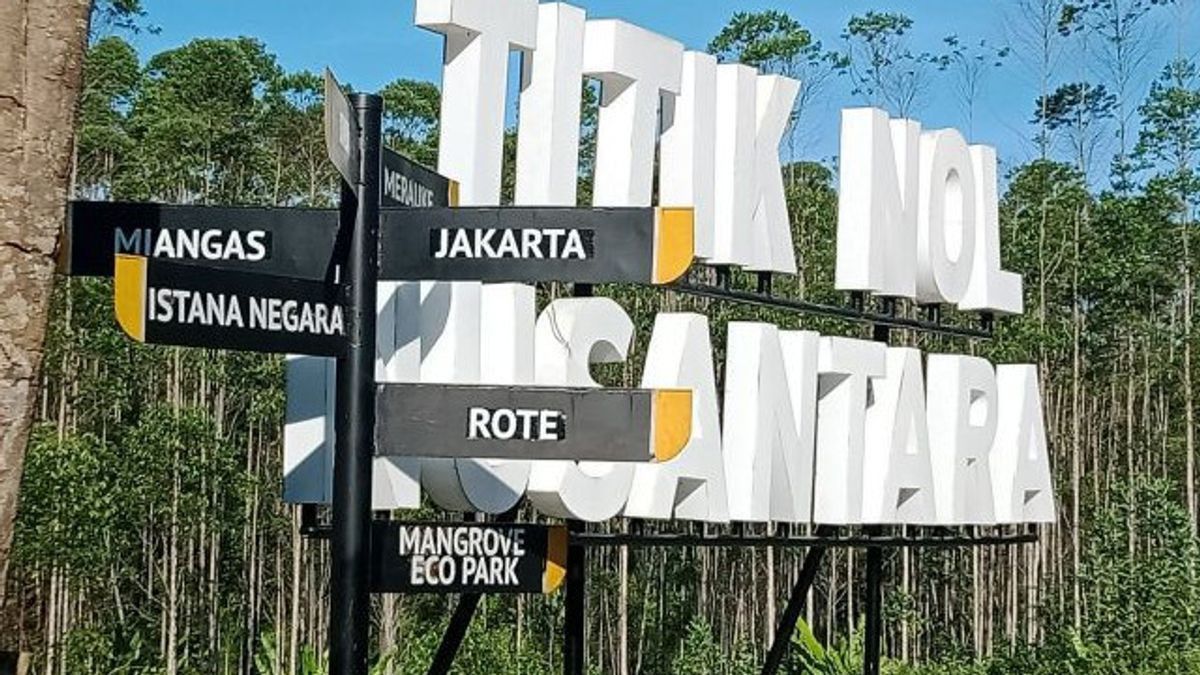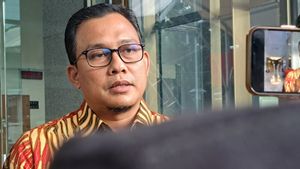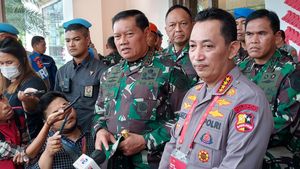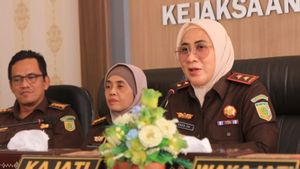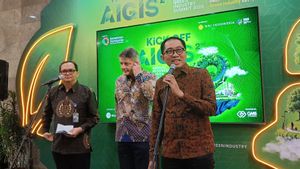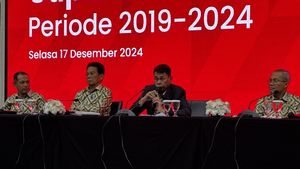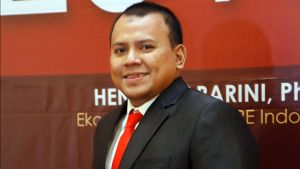JAKARTA - Head of the Nusantara Capital Authority (OIKN) Bambang Susantono received a visit from the Swiss Ambassador to Indonesia Olivier Zehnder and Head of Asia Pacific of the Swiss Ministry of Foreign Affairs Heinrich Schallenberg at the OIKN office in the residential area of construction workers at IKN Nusantara.
"The Swiss government is our good partner. They also want to see what cooperation can be carried out regarding the development of the IKN," said Director General for America and Europe of the Indonesian Ministry of Foreign Affairs Umar Hadi in a statement quoted by ANTARA, Wednesday, February 8.
According to Umar Hadi, the Swiss government wants to come directly to the location and see the construction of the IKN.
Head of OIKN Bambang Susantono welcomed the arrival of the Swiss Government to IKN.
"Of course, we are very happy, Seeing is believing," said Bambang Susantono.
Bambang was also accompanied by OIKN officials, including Deputy Head of OIKN Dhony Rahajoe, OIKN Secretary Jaka Santos, Deputy for Environmental and Natural Resources Control Myrna A. Safitiri, and OIKN spokesperson Diani Sadiawati.
Bambang explained that the position of IKN will later become an economic driver for the two closest big cities, namely Balikpapan and Samarinda.
"So, like the economic triangle, Nusantara will develop together with the two cities," he said.
The goal, continued Bambang, is that Indonesia's economic growth will also increase, and in 2045 Indonesia will become a country with a population that has high income (high-income countries).
Bambang said there were nine drivers of the Nusantara's economy, including the core government area (6,671 hectares), the Economic and Financial Center (IKN West covering 17,206 ha), the New and Renewable Energy Area (Southern IKN covering 6,753 ha), the Tourism Area (IKN East covering 9,671 ha). ), Education Area (North IKN covering an area of 12,607 ha), and Research and Innovation Center (East IKN covering an area of 3,720 ha).
According to Bambang, IKN Nusantara was built with the Forest City concept. This is Indonesia's step to mitigate climate change. 65 percent of Nusantara's IKN area will become tropical forests through reforestation, 10 percent will become park areas and food production, and 25 percent will be urban areas.
"The goal is for Nusantara to become a carbon-neutral city in 2045," he said.
Bambang also said that there are many investment opportunities in IKN such as toll roads, smart city ecosystems, low carbon energy, the development of Sepinggan Airport, and ecotourism.
"Currently there are three investors who are ready to enter to build housing for state civil servants, and there are 90 investors who have signed an LoI," he said.
SEE ALSO:
The Swiss Ambassador to Indonesia Olivier Zehnder was impressed with IKN's plans and vision and mission. They are also very enthusiastic about the IKN concept, especially as a forest city.
Zehnder also expressed interest in exploring cooperation in various fields, especially economic cooperation related to the development of IKN.
"I will help to bring our entrepreneurs to IKN," said Zehnder.
In addition, according to Zehnder, the Swiss government is also ready to transfer experience to strengthen education, including in the tourism sector.
"We have many academics, researchers as well as corporations who have the expertise to help IKN. After this visit, of course, we will follow up immediately," said Zehnder.
During his visit to IKN, the Swiss Ambassador's entourage also went around seeing various development developments at IKN.
It is known that nine out of 22 towers of construction worker housing (HPK) are ready for use. This area is also equipped with various facilities such as mosques, clinics, and places to eat.
The English, Chinese, Japanese, Arabic, and French versions are automatically generated by the AI. So there may still be inaccuracies in translating, please always see Indonesian as our main language. (system supported by DigitalSiber.id)
